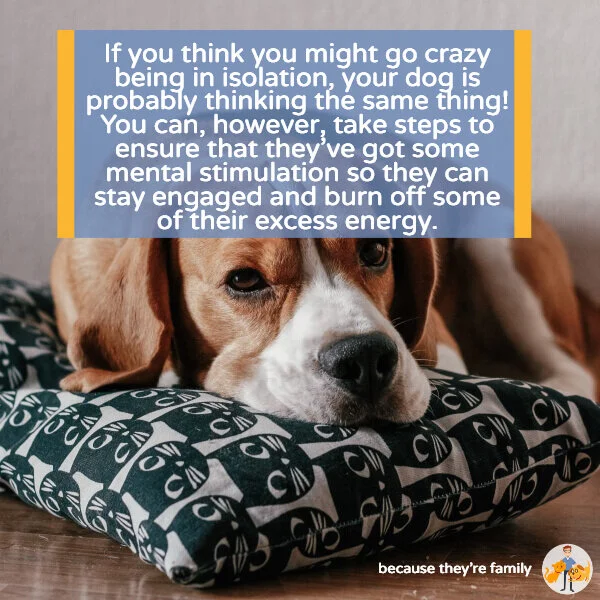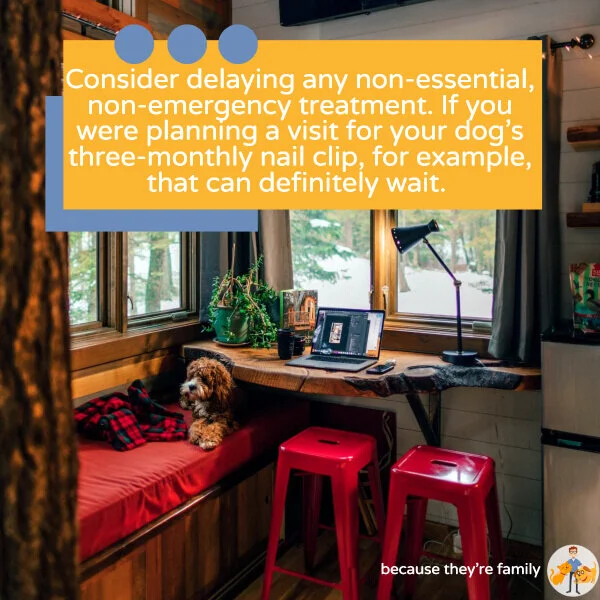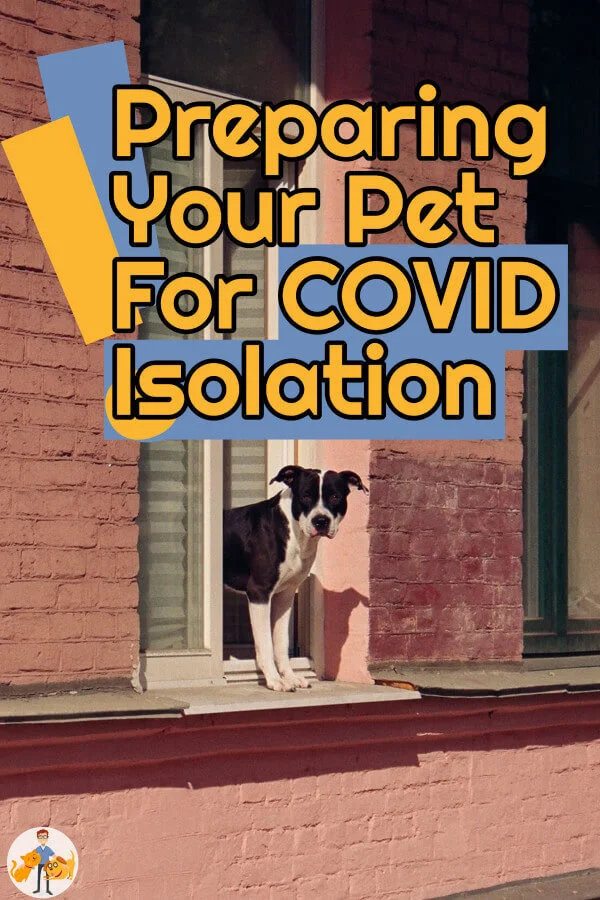Preparing Your Pet For COVID Isolation
Our Pet’s Health is community-supported. When you buy through links on my site, I may earn a small commission at no additional cost to you (learn more). That said, I only recommend products I believe in, thanks!
With coronavirus sweeping across the world, many of us are having to go into self-isolation to try and help limit the spread of this deadly disease.
With many parts of the world heading into lockdown (or this already being a reality - NZ started shutting down all non-essentials at the start of this week), today I want to talk about how you can actually prepare your pet for isolation if (more likely when) the impact of coronavirus hits your household.
Supplies
The first thing we need to think about is supplies and making sure you've got enough of the essentials.
Of course, I'm not talking about hoarding. You shouldn't go out and buy all of the dog and cat food that's on the shelf, meaning that no one else can get any.
I simply mean don't leave it until the last minute before you are looking to replenish your stocks. Supplies may be a little bit hit or miss. Opening hours of shops may be different, and the services that we normally rely on may be disrupted.
The main supplies to consider are:
Food
Litter
Medical supplies
Make sure you've got a couple of weeks worth of these supplies in the house at all times, especially essential medication. Veterinary services may be disrupted, or it may be that you struggle to get to the vet to pick up the supplies.
You can also consider online delivery to make the practice of social distancing much easier to comply with (suggested links below).
Mental Stimulation
One thing that I think a lot of people won't think about, is that if you are self-isolating because you've been in contact with an infected individual or because you're unwell, you will not able to exercise your dog.
If you think you might go crazy being in isolation, your dog is probably thinking the same thing!
You can, however, take steps to ensure that they've got some mental stimulation so they can stay engaged and burn off some of their excess energy.
This will help your dog stay as happy as possible despite not being able to go out exploring in the wider world.
All dogs, regardless of isolation status, are likely to benefit from having a couple of different food toys. These help lengthen mealtimes and can provide a rewarding puzzle for them to spend time working on.
Some excellent option (that you can find these on my Amazon page) include: kongs, licki mat, snuffle pads, and various different food puzzles. If you prefer to avoid Amazon then another good-value online option is chewy.com.
These isolation accessories will help prevent potential destructive behavior, barking and getting frustrated and unhappy with the situation your dog finds themselves in.
Backup Carer
You also need to be thinking about having a backup carer for your pet.
Do you have someone who can come and look after your pets if you do need to get taken to the hospital?
Does your backup carer have a key?
Are they aware of the care that your pet needs and are they able to provide it?
Are they happy to actually go and look after your pet given the current situation?
If you have someone who is normally happy to look after your pet but they're worried about catching coronavirus from your pet, then I'd encourage you to check out my comprehensive guide to coronavirus in pets which explains how the risk is very, very low.
Accessing Veterinary Care
If you do need to take your pet to the veterinarian because they are unwell or for any other reason, then definitely call ahead. Especially if you've pre-booked an appointment some time ago.
The current situation is very fluid, with many veterinary clinics taking the difficult decision to reduce the services they are offering so that they can minimize the risk to staff while still being able to provide care to those patients who truly need it.
Make sure that appointments are still running. Understand any requests that are made regarding letting the hospital know you’ve arrived and how your pet will be seen.
It could be that you need to wait in the car, phone the clinic, and your dog or cat will then be collected by a staff member.
If you are able to enter the clinic, make sure that only one family member enters. This will again minimize staff exposure as well as the risk to your family. Wash your hands well before and after entering and exiting the clinic as well.
Also, consider delaying any non-essential, non-emergency treatment, even if your vet is able to perform it. If you were planning a visit for your dog’s three-monthly nail clip, for example, that can definitely wait. It may be that your pet’s routine vaccinations are able to be delayed by a month or two. Your veterinary team will be able to advise you of this if you simply give them a call to discuss your pet's requirements.
If you are feeling unwell, if you are showing any symptoms of coronavirus then it is clearly vital that you stay in isolation and do not attend the vet clinic. Instead, let your veterinarian know the situation and advise them that someone else who has not been in contact with you will be bringing your pet to them.
As a final plea, if your veterinarian is not providing their normal routine service then do not start shouting at them (I’ve heard tales from colleagues about the extreme level of abuse they are being subjected to). We are all trying to provide a health service for our patients but at the same time minimizing the risk to ourselves of suffering from this deadly disease.
Everyone is stressed out at the moment, and a little kindness and understanding goes a long way.
We are all in this together.
Take care out there.




